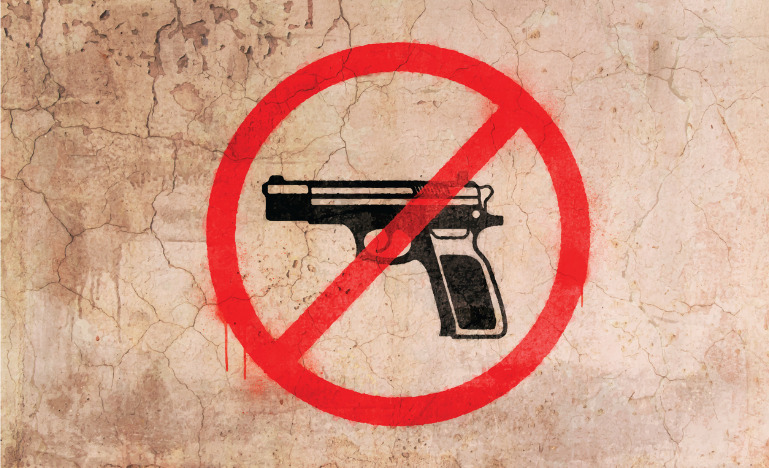Irrational lawmaking
The government has failed to make the case that banning legal handguns is a solution to tackling violent crime.

When it comes to the most pressing issues facing Canadian society today, government has rightly insisted that evidence, not ideology, inform our policy responses. The regulation of firearms should be no different.
Unfortunately, Canada’s sweeping new firearms bill, which allows municipalities to effectively prohibit handguns, is a poorly targeted measure that is unlikely to reduce violent crime. The reason is that—unlike the United States—stringent and effective handgun regulations already exist in Canada.
Under the current Firearms Act, purchasing a handgun requires a restricted “Possession and Acquisition License” (PAL) from the federal government. Obtaining a PAL requires satisfying several legal conditions, including successful completion of a firearms safety course, registration with the RCMP, a 28-day waiting period (which is much longer in practice), and an extensive background check for any criminal history. Indeed, all licensed PAL holders are entered in a federal database and are subject to continuous background checks at any time. Any incidence of violent crime, mental health problems, or other identifiable safety risks is grounds for revocation and seizure of any firearms. In addition to these strict licensing requirements, all handgun sales are federally tracked and registered, and handgun owners face tight restrictions on storing, transporting, and using their firearms (under current law, handguns may only be loaded and fired at a registered firing range).
Given their close monitoring by the federal government, it is hardly surprising that licensed gun owners are among the most law-abiding members of Canadian society. Crime statistics indicate that PAL holders are less than half as likely as the average Canadian to commit homicide. Firearms used in homicides and other crimes are far more likely to be illegally smuggled from the United States, where gun laws are relatively lax. Banning legal handguns will do nothing to stop this illegal flow.
Aside from their ineffectiveness, municipal handgun bans also raise problems of implementation. In a large municipality such as Vancouver, where Mayor Kennedy Stewart has already announced plans to prohibit handguns, a citywide ban on handguns would impact thousands of legal gun owners. Any legislation that criminalizes substantial numbers of Canadians should give us pause, and requires—at the very least—a public conversation regarding costs and benefits. This is especially true given that inconsistent rules across bordering municipalities could easily lead to inadvertent violations (by driving through a “banned” municipality on the way to a firing range, for example). Even if a handgun ban were to go forward, “banning” handguns does not address the complicated problem of their disposal. Handguns are expensive and potentially dangerous tools that cannot simply be thrown into a trash bin. Will municipalities collect handguns and compensate users for their financial loss? Will they simply seize personal property without compensation? We need to answer these difficult questions for any regulations to be feasible.
Ultimately, however, the greatest problem with handgun bans is they violate the principle that Canadians should not be deprived of preexisting rights without rational, evidence-based reasons for doing so. Advocates of gun control often argue—correctly—that the Canadian constitution does not protect the right to own firearms. This attitude is reflected in Public Safety Minister Bill Blair’s recent comment that gun ownership in Canada is “a privilege, not a right.” Characterizing rights as privileges sets a troubling precedent, however, as the constitution is equally silent on most activities Canadians enjoy, many of which are more dangerous than responsible firearm ownership. Our rights to make our own choices are not favours granted by government, even when those choices lack explicit constitutional protection. In a tolerant society such as Canada’s, citizens should have the freedom to pursue whatever interests they enjoy, unless the government can reasonably argue that their actions pose a danger to others. With respect to owning handguns, the government has not made its case.
In justifying his calls for a handgun ban in Vancouver, Mayor Stewart has claimed that “the greatest threat to public safety is the proliferation of handguns.” With all due respect, this statement is ludicrous on its face, given the far greater number of deaths caused by alcohol, automobile accidents, and even simple falls, not to mention the raging opioid crisis and our ongoing battle against COVID-19. The unfortunate reality is that many Canadian policymakers harbour inaccurate perceptions of firearm owners, often influenced by the gun violence and contentious politics of the United States. American and Canadian gun laws are already much different, however, and stoking fears will not result in effective, evidence-based policy.
The views expressed above are those of the author and do not reflect the position of the Canadian Bar Association.


